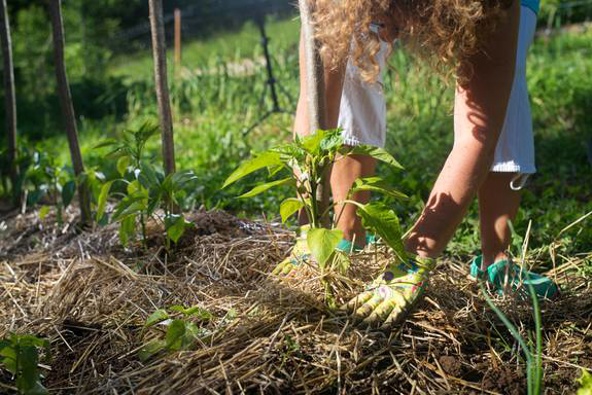It’s time to start thinking about winter and looking after your soil.
We all know that garden soil thrives when you add Organic material (compost!!!) to the soil. Just like the Sea-food soup it enriches the Fertiliser amount and that helps no, not just the plants, but certainly the tiny live-stock in the soil that feeds the plants through the roots: Photosynthesis is the way a plant feeds itself.
It allows the microbes and beneficial fungi to work on the mulch – it simply breaks the mulch down and turns it into a kind of slow-release fertiliser that will benefit the plants when everybody “wakes up” in spring.
Chipped prunings from your fruit trees, hedges, severed dead branches and twigs, old fallen fruits, berries, and husks are all ready to be recycled according to the law of “Circular Economy” which runs the planet and your garden.
My most wonderful tool in the garden is our Hansa C7 Chipper Machine; it works its bottom off at this time of the year.
Everything that goes through it will turn to mulch and everything that once lived will turn to compost, even Coffee grounds!
There are lots of articles that warn gardeners against using coffee grounds in the garden, so we’ve decided to have a go at that stuff (our son-in-law owns a French bakery that also brews a decent cup of coffee – plenty of brown grounds in serious quantities).

Information around this topic:
Acidity (pH): After brewing, the grounds are almost pH neutral: between 6.5 and 6.8 (higher than Hydrangeas that need a lower pH to flower blue!
Nitrogen: Just 2%; not a great deal – still need N on the soil in spring!
Other nutrients: Phosphorous, Potash, Calcium, Magnesium all in rather small amounts and Manganese, Zinc and other micronutrients also in very small quantities – certainly not an “over-dose”.
So, it looks as if these coffee grounds really don’t produce a heap of “plant food”; instead, they “feed” the microbes that deliver “Glues” that are brilliant at producing great soil structure.
What about effects on plant growth? Any negative effects?
Robert Pavlis (a Canadian who writes an interesting blog called Garden Myths) led me to some publications around Testing caffeine for allelopathic effects.
The findings show that if you use huge amounts of coffee mulch it could certainly stunt the growth of bacteria, fungi, seedlings and even plants! (Does that surprise you?)
However, after 6 months the trend totally reverses, and the plants grow better than before.
And here’s Julie’s observation:
Since we used the grounds as “mulch”, the blackbirds (her worst enemy that toss mulch out of the garden and onto the paths) have ceased vandalising the borders and raised beds.
No more mess of ornithological origin!
LISTEN ABOVE
Take your Radio, Podcasts and Music with you










